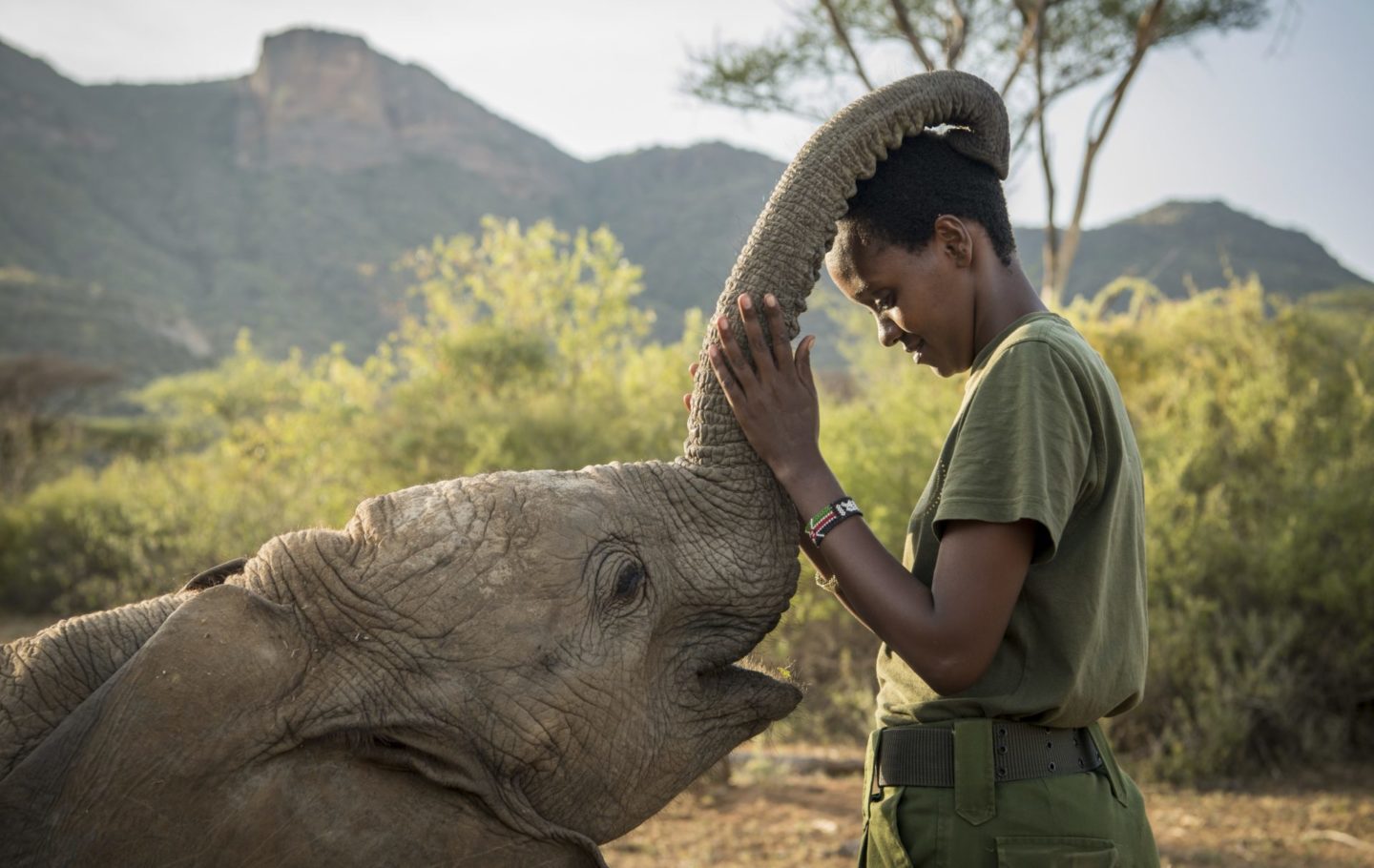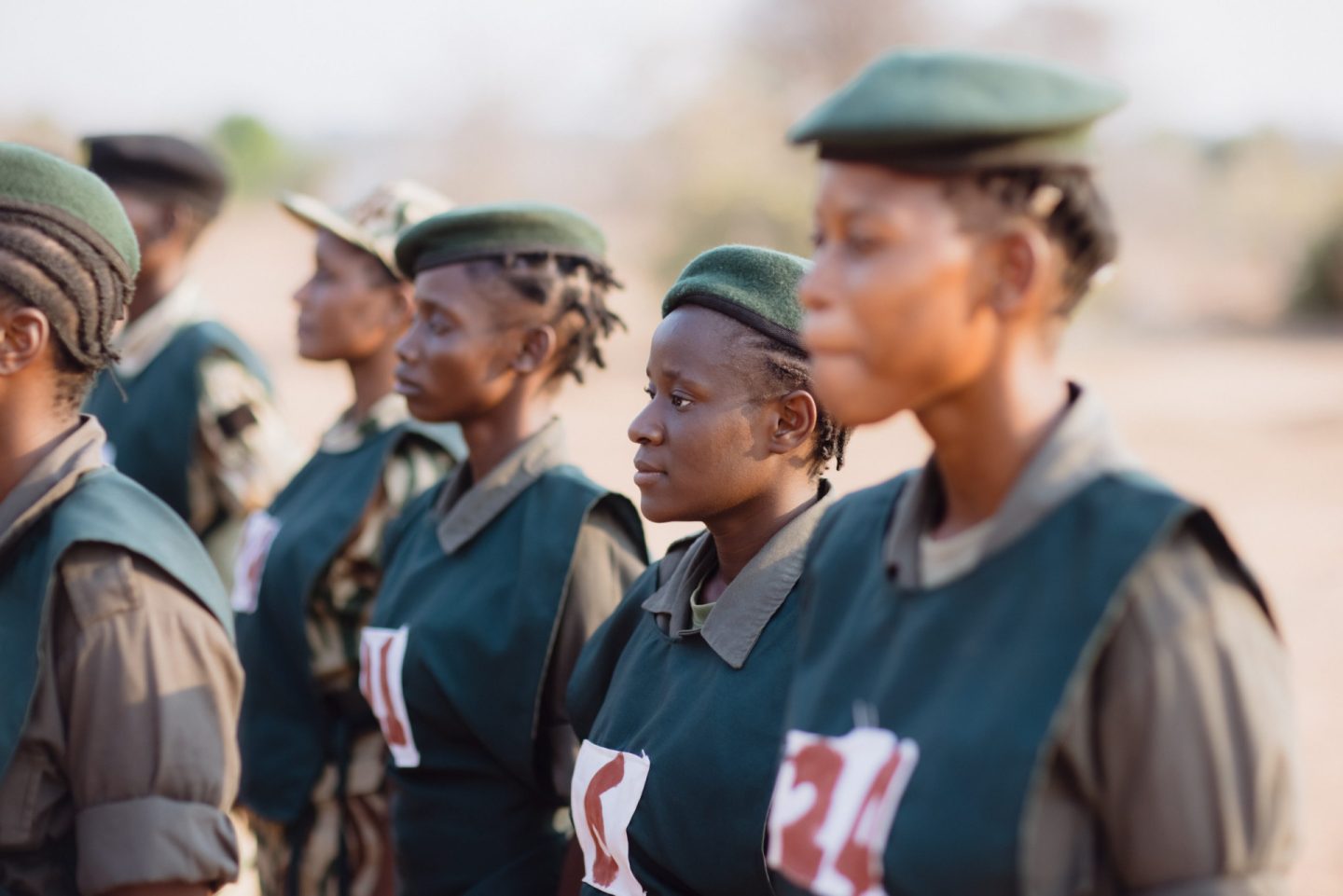
Vongani Masingi
Ranger for the Black Mambas Anti-Poaching Unit
“…If women are given a chance to step into more ranger roles, we can do so much more for wildlife and our communities as well. If both men and women rangers unite, our spirit will be unbreakable.”
The Black Mambas are an all-female ranger unit working in Balule Nature Reserve, near the Greater Kruger National Park in South Africa. Some of Vongani’s career highlights include saving a kudu caught with a freshly set snare around its throat and being recognised with the unit’s Northern Team by the IUCN as a highly commended ranger team.
The Black Mamba’s have participated in the Wildlife Ranger Challenge and Vongani said that competing in the challenges “lifted our spirit up, increased the drive and improved our team work.”
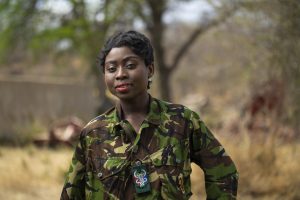
Credit: Rivoni Mkansi
Josia Razafindramanana
Tusk Award for Conservation in Africa Finalist 2013
“Local management committees have received training on conflict resolution and governance, and through practical environmental education, communities have begun to adopt eco-friendly attitudes and behaviour.”
Josia is the CEO and co-founder of IMPACT Madagascar, an NGO that protects and conserves the unique biodiversity of Madagascar while also improving the lives of its people. Through Josia’s leadership, IMPACT has been able to protect vital ecosystems that sustain the lemurs, while also maintaining ecosystem services for local people, such as safe water and agricultural land. In 2016 IMPACT Madagascar joined our Pan – African Conservation Education project, ensuring they empower the next generation to protect the environment.
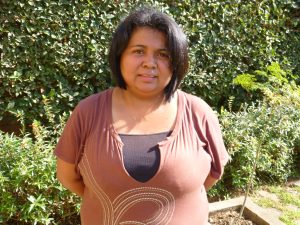
Kerri Wolter
Tusk Award for Conservation in Africa Finalist 2013
“Without conservation intervention right now, the chance of seeing vulture extinctions in our lifetime is a very real possibility.”
Kerri Wolter is the CEO of Vulpro, a vulture rehabilitation centre in the Magaliesberg Mountain range in South Africa. VulPro operates a vulture rescue and rehabilitation programme to treat injured, grounded, and disabled vultures, which are released as soon as possible and subsequently monitored. There is also a breeding programme, forming one of only two breeding facilities in Africa committed to releasing offspring into the wild.
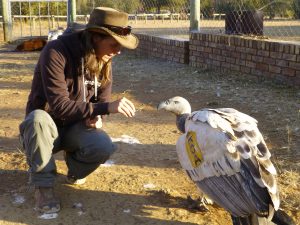
Amy Dickman
Tusk Award for Conservation in Africa Finalist 2014
Amy established Tanzania’s Ruaha Carnivore Project (RCP) in 2009. Located in one of the world’s most important and inaccessible wildernesses, The Ruaha area is globally valuable for threatened carnivores, supporting over 10% of the world’s remaining lions. Amy discovered that lions were being killed there at a rate unmatched anywhere else in Africa – 39 lions were killed in under 18 months.
Amy and her team have worked with many thousands of local people to reduce conflict and improve the situation. They have helped people better protect their livestock, developed extensive community healthcare and education initiatives to demonstrate tangible benefits from carnivore presence, and have built significant capacity and awareness through employment, training and education. Since 2011, carnivore killing in the core area has been reduced by 80%.
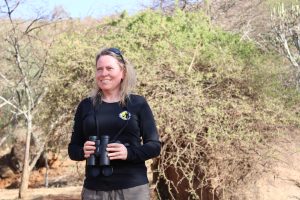
Credit: Lion Landscape
Dr Mary Molokwu
Winner of the Tusk Award for Conservation in Africa 2015
Dr Mary Molokwu wishes to ‘inspire and empower upcoming African conservationists.’
As a Nigerian woman Mary’s choice of career has not always been understood among her peers, and Mary is frequently the only female voice among a crowd of senior male professionals. As the Liberia Country Manager of Fauna and Flora International, Mary has worked tirelessly to successfully establish, develop and sustain academic forestry and conservation programmes for a wide community of students, professionals and international bodies.
Some of Mary’s achievements include: the inclusion of conservation modules in forestry curriculums of Liberia’s main academic institutions; a centre for conservation training constructed in Sapo National Park for forestry students and professionals; over 70 forestry students, professionals and academics trained via 11 theoretical and practical field courses and an internship conservation training scheme established.
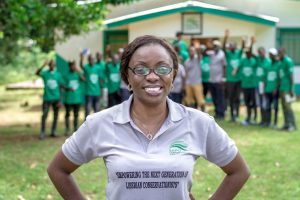
Cathy Dreyer
Winner of the Tusk Award for Conservation in Africa 2016
“I am driven by the need to feel that I am making a difference and contributing meaningfully to conservation.”
Cathy’s work has led directly to the establishment of new black rhino populations in South Africa, the country with the highest population of rhino – yet facing the highest rate of poaching. Cathy’s success has been totally through her own efforts and as a woman she has faced greater challenges than most. Crucially, Cathy has helped to bring people working in conservation together, principally in a number of national and international rhino translocations.
Cathy was the first ever appointed head ranger at the Kruger National Park in South Africa.
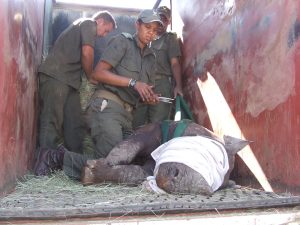
Rachel Mcrobb
Tusk Award for Conservation in Africa Finalist 2016
“I am one of those lucky people in life who finds fulfilment just being in wild places surrounded by wildlife”
Rachel McRobb formed Conservation South Luangwa, the area’s largest non-profit anti-poaching and community conservation organisation. As a woman in an overwhelmingly male-dominated sector, she achieved this from virtually nothing, in an extremely challenging political, environmental, and logistical environment, whilst combating severe conservation threats.
Rachel says; “My inspiration comes from the people doing the endless tough field work, the scouts on the ground fighting the poaching battle, the conservationists educating the children, the scientists working to gather the data to change policy, these are the people who are recognised the least and yet contribute the most.”
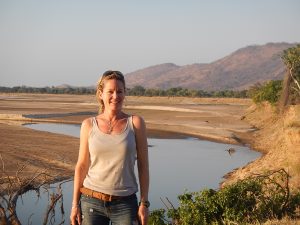
Serah Munguti
Finalist of the Tusk Award for Conservation in Africa 2017
“Nature matters to all of us. It is the food we eat, the medicine we use, the fuel we use and the clothes we wear. We should all do our part in conserving the natural environment. We owe it to ourselves. We owe it to future generations.”
Since 2007, Serah has spent her time advocating locally, nationally and internationally for the conservation of the Tana River Delta in Kenya. The Delta is a 130,000-hectare wetlands area rich in natural resources. It supports two endemic primates, the endangered Tana River colobus and Tana River crested mangabey.
Serah grew up in Machakos and she worked to gain a place at Moi University to study conservation. She empowers local conservation groups to claim rights to manage resources sustainably and advocates for changes to policies and plans to support them. Serah also spearheaded the Land Use Plan (LUP) and Strategic Environment Assessment (SEA) throughout the Tana Delta area in 2015, which won the 2016 UK’s Royal Town Planning Institute’s International Award for Planning Excellence.
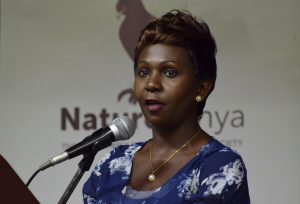
Dr Gladys Kalema-Zikusoka
Tusk Award for Conservation in Africa Finalist 2019
Following a moving encounter with a mountain gorilla in the Bwindi Impenetrable Forest, Dr. Gladys Kalema-Zikusoka, at the age of 25, became the first ever wildlife vet for the Uganda Wildlife Authority (UWA).
One of her first accomplishments was to successfully diagnose an outbreak of scabies (human skin disease) in the Bwindi gorillas and link it to poor hygiene in impoverished neighbouring communities. Unhygienic practices, such as scarecrows with dirty clothing, had led to disease transmission.
In 2003 Dr Gladys established Conservation Through Public Health (CTPH), an organisation that focuses on both human and gorilla health. Teams of voluntary health conservation workers train households on hygiene and sanitation practices that promote better health – including family planning – while the Human Gorilla Conflict Prevention teams mitigate crop-raiding by gorillas.
CTPH’s latest project is Gorilla Conservation Coffee, a social enterprise that seeks to secure premium prices for local coffee farmers with a portion of each sale going towards gorilla conservation. These tangible improvements to livelihoods have led to increased positivity towards gorilla conservation and tourism.
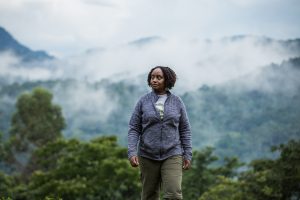
Credit: Kibuuka Mukisa
Julie Razafimanahak
Tusk Award for Conservation in Africa Winner 2021
“Leading an NGO as a young Malagasy woman was a difficult challenge for many people. But with any change comes the opportunity to make people realise that anything is possible.”
Julie Razafimanahaka is the Executive Director of Madagasikara Voakajy, overseeing its mission to prevent the extinction of Madagascar’s endemic species. Through Julie’s work: a study on bushmeat hunting is being used to lobby a change in law; an education programme is shaping a future generation of conservationists and a pioneering project hopes to guarantee protections of the Grandidier’s baobab tree by establishing a fair-trade market for the fruit.
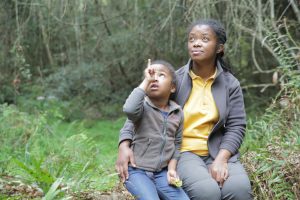
Rachel Ikemeh
Tusk Award for Conservation in Africa 2021
“I’ve had several near-death experiences, but that’s never really shaken me. There is a bigger thing that I’m more frightened about which is losing biodiversity, losing the forest, the animals. I’m more frightened about that than I am about losing my life.”
Rachel Ikemeh is the Founder and Director of the SW/Niger Delta Forest Project. Although she hates to admit it, being a woman in a male dominated profession did pose obstacles. Her family were also concerned about the dangers involved in her work, resulting in her mum even offering to match her salary if she agreed to come home.
Rachel has been instrumental in creating two conservation areas in the Niger Delta and the southwest, providing vital protection for species such as the highly endangered Niger Delta red colobus monkey and the Nigerian-Cameroon chimpanzee.
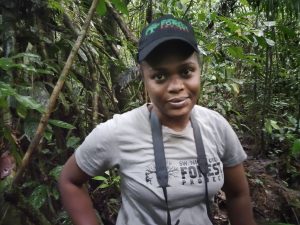
If you would like to recognise and celebrate one of your own conservation heroes, nominations are now open for the Tusk Conservation Awards 2023. Consider anyone who has inspired you; a friend, a colleague, or even someone you’ve heard about who you believe deserves to be appreciated for their extraordinary conservation efforts.
Main image Credit: Andrew MacDonald

